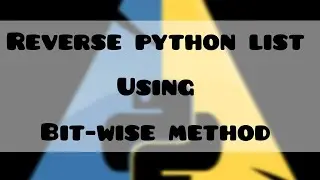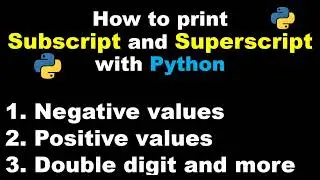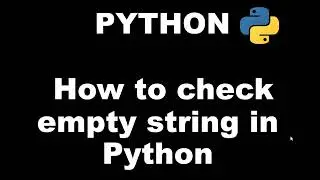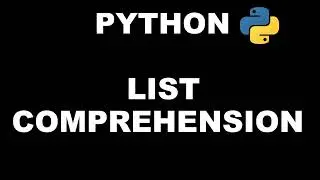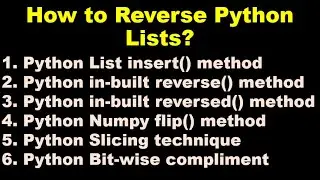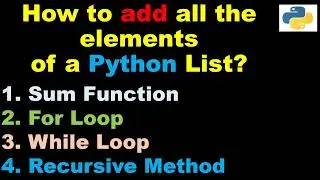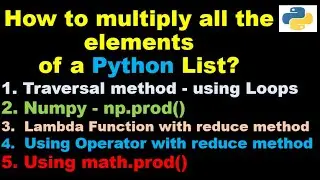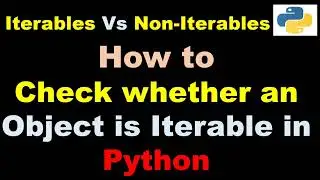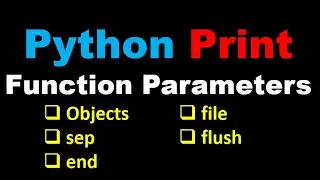Python for Machine Learning | Feature Scaling - Min Max Scaler | Min Max Scaler to scale features
Python for Machine Learning - Part 22 - Feature Scaling - Min Max Scaler
Github Link -
Python for Machine Learning - Part 22 - Feature Scaling - Min Max Scaler
Feature Scaling - Topics to be covered
1. Min Max Scalar
2. Standard Scalar
3. Normalize
4. Binarize
from sklearn import preprocessing
import numpy as np
x = np.array([[-400],
[-100],
[0],
[100],
[400]])
minmaxscaler = preprocessing.MinMaxScaler(feature_range=(0,1))
x_scaler = minmaxscaler.fit_transform(x)
print(x_scaler)
(Xi - Xmin) / (Xmax - Xmin)
(-100 -(-400))/(400 -(-400) )
(-100 + 400) / (400 + 400)
300/800 = 3/8
Applying it to 3X3 Matrix
x1 = np.array([[1,2,3],
[4,5,6],
[7,8,9]])
minmaxscaler1 = preprocessing.MinMaxScaler(feature_range=(0,1))
x_scaler1 = minmaxscaler1.fit_transform(x1)
print(x_scaler1)
Applying it to a Pandas Dataset
import pandas as pd
dataset = pd.read_csv('Age-Salary.csv')
features = dataset.iloc[:,[2,3]].values
minmaxscaler_as = preprocessing.MinMaxScaler(feature_range=(0,2))
features_scale = minmaxscaler_as.fit_transform(features)
All Playlist of this youtube channel
====================================
1. Data Preprocessing in Machine Learning
2. Confusion Matrix in Machine Learning, ML, AI
3. Anaconda, Python Installation, Spyder, Jupyter Notebook, PyCharm, Graphviz
4. Cross Validation, Sampling, train test split in Machine Learning
5. Drop and Delete Operations in Python Pandas
6. Matrices and Vectors with python
7. Detect Outliers in Machine Learning
8. TimeSeries preprocessing in Machine Learning
9. Handling Missing Values in Machine Learning
10. Dummy Encoding Encoding in Machine Learning
11. Data Visualisation with Python, Seaborn, Matplotlib
12. Feature Scaling in Machine Learning
13. Python 3 basics for Beginner
14. Statistics with Python
15. Sklearn Scikit Learn Machine Learning
16. Python Pandas Dataframe Operations
17. Linear Regression, Supervised Machine Learning
18 Interiew Questions on Machine Learning and Data Science
19. Jupyter Notebook Operations











